Being a woman Biomedical Engineer in the new generation
Ethel Enam Abla Nyamador is a Biomedical Engineer in the new generation. She is studying at the University of Ghana. In this article she shares her experience so far and her hopes and aspirations for the future.


Becoming a Biomedical Engineer now
Background
Have you always liked fixing things? And helping people?
From a young age, I have always enjoyed bringing things together to create something, rather than just fixing broken items. My childhood was filled with dreams of finding ways to help improve people’s health and well-being. I suppose that initial interest in the medical field is what sparked my early aspirations of becoming a doctor. However, my current passion lies in developing innovative devices and solutions that can directly benefit and positively impact the lives of others.
Was there a particular person at school who inspired you to study engineering?
Yes. One particular individual who inspired me to pursue engineering was Deborah Billa, a brilliant student and member of our school’s National Science and Maths Quiz team. During a third-year assembly gathering, I inquired about her interests. In answer, she shared that she was deeply interested in engineering, a field I admittedly knew very little about at the time. Deborah’s enthusiasm and the reasons she provided for her engineering aspirations motivated me to explore and learn more about the various disciplines it encompasses. She is currently studying Electrical and Electronics Engineering at the Kwame Nkrumah University of Science and Technology in Ghana.
Interests and Inspirations
Were there any childhood interests which were a factor?
Yes. From a very young age, I was captivated by scientific discoveries, often watching programmes about them on television. I was an inquisitive child, safely conducting simple experiments with materials readily available in our home. Reading was my favourite pastime, and I read books covering a wide range of topics – from how machines operate and detective-themed books to the classic Nancy Drew mysteries. I cherished opportunities to read science books alongside my school friends. In addition, I had apps that provided interactive science activities.
Who are some famous engineers or scientists that you admire?
Some of the renowned engineers and scientists I greatly admire include Thomas Edison, Leonardo Da Vinci, Elon Musk, Emily Ratliff, and the esteemed Ghanaian academic Professor Elsie Effah Kaufmann.
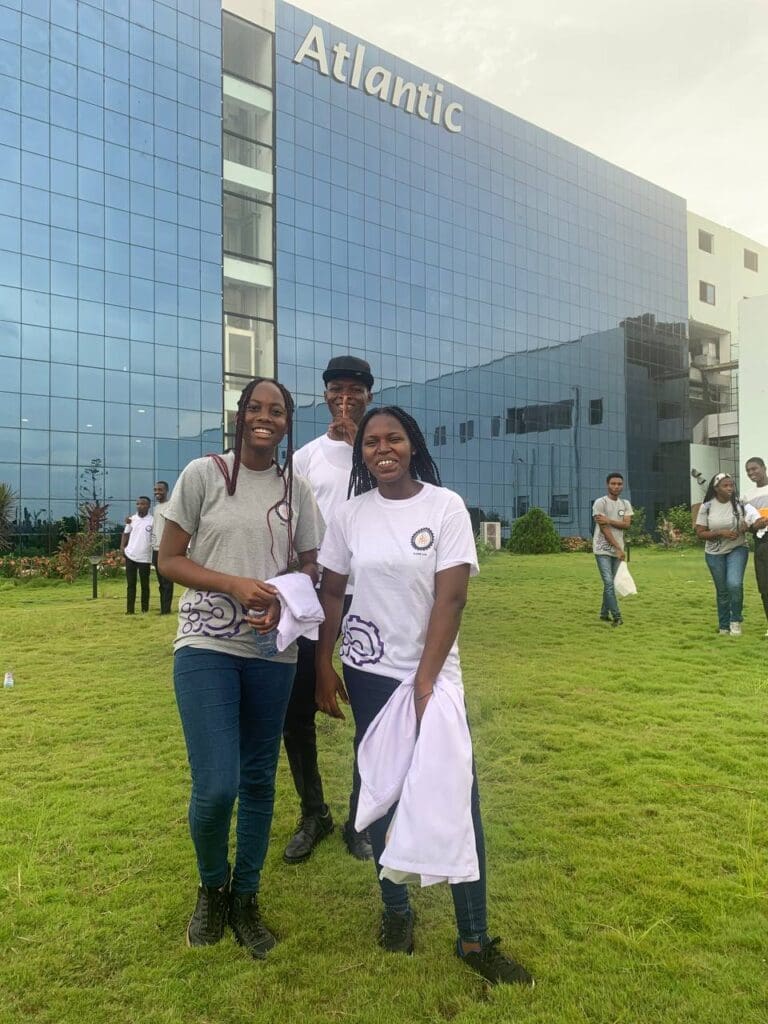

Why study biomedical engineering and form the new generation
Why would you suggest studying biomedical engineering to other young people?
Biomedical engineering is one of the best fields of study. It combines engineering principles with medical applications to develop groundbreaking, innovative solutions for even the most complex challenges. Whether designing advanced prosthetics, cutting-edge medical imaging instruments, or other crucial devices, biomedical engineering opens up a diverse array of fulfilling career opportunities. By pursuing this discipline, one can directly contribute to improving healthcare capabilities and, ultimately, enhancing the quality of life for countless individuals worldwide.
If someone is at school now, what could they do to start to prepare for studying biomedical engineering?
To begin with, they must be focused, and perseverant, and not be distracted easily by frivolous pursuits. The course can be stressful, but you will overcome that and take control with focus and motivation. Obtaining relevant resources, such as textbooks, journals, and research papers, is highly recommended to build a solid knowledge foundation. School libraries and open-source databases are excellent starting points for accessing a wealth of information, including articles and publications detailing the ground breaking work of pioneers in the engineering and scientific communities.
Familiarising oneself with key software tools like MATLAB, CAD, OpenSim, and other open-source platforms is also advantageous. Exploring online courses and undertaking practice projects through sites like Coursera can provide valuable hands-on experience. One should cultivate the spirit of networking and seek mentorship from experienced faculty members or industry professionals. Also, participating in seminars, conferences, and STEM-related activities is a very necessary action to consider.
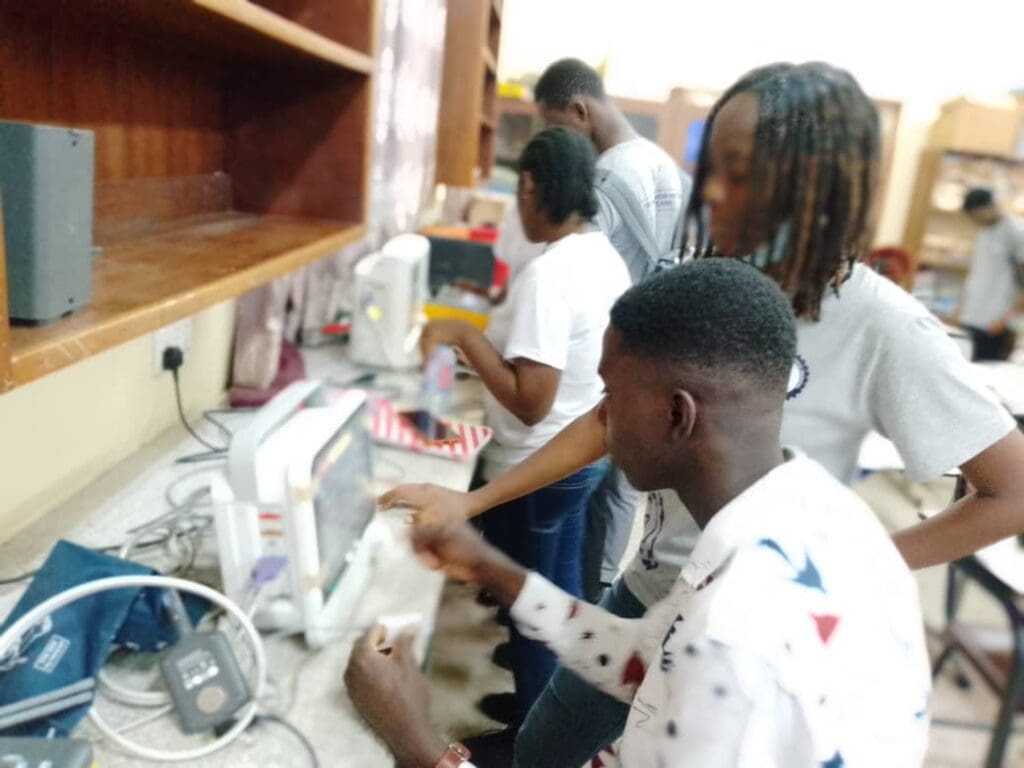

A career as a Biomedical Engineer in the new generation
Why in your opinion is it a good career?
In my opinion, biomedical engineering is an exceptionally rewarding career path. Biomedical engineering introduces one to a world of problem-solving through the innovative integration of science and engineering principles. Our world is ever evolving, and this discipline presents boundless possibilities to unearth novel findings and implement them in ways that can transform and enrich the lives of people globally. The versatility of a biomedical engineering background is particularly appealing. The skills and expertise are transferable, enabling one to pursue diverse professional avenues across multiple sectors beyond healthcare, such as business, technology, research, public policy, and even entrepreneurship.
What sort of personality traits are ideal for becoming a biomedical engineer?
Curiosity, analytical thinking, creativity, problem-solving skills, empathy, collaborative skills or teamwork, adaptability, technical proficiency, and ethical integrity are ideal traits for becoming a good biomedical engineer.
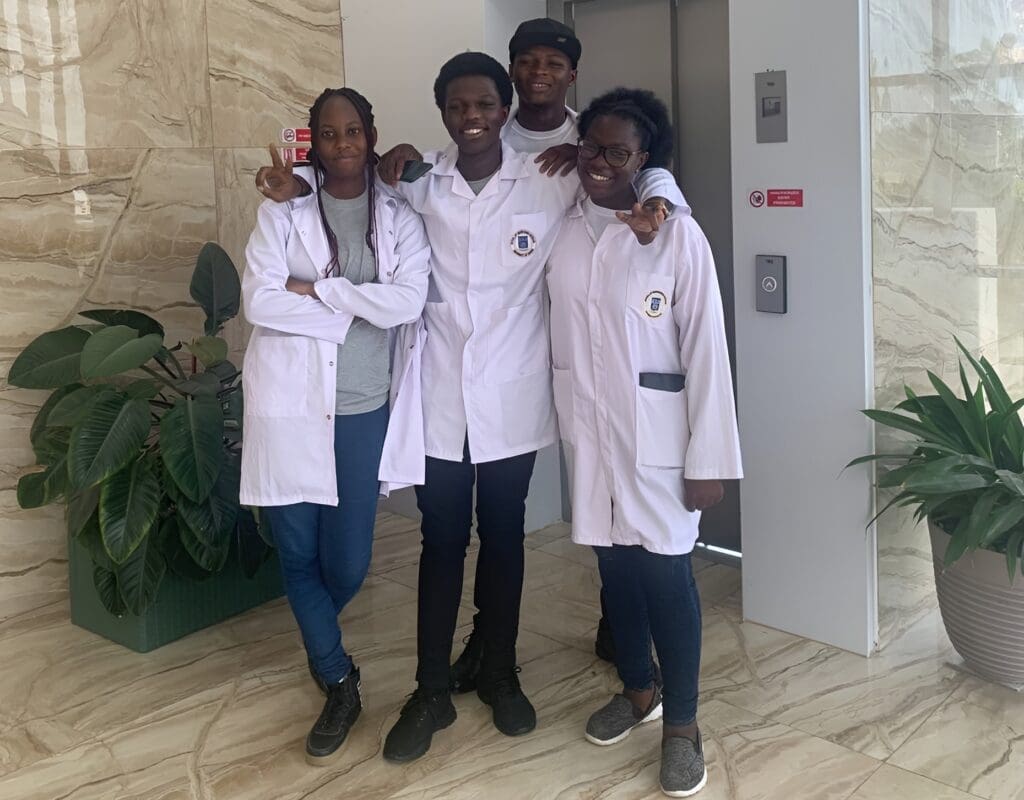

Women in engineering
The number of women engineers is growing. If a girl at school is considering studying engineering, but has concerns, what would you say to reassure her?
Currently, more women are being welcomed into the field.
The number of women engineers is gradually increasing as stated, and more opportunities are opened for women interested in the field. There are many associations and communities created to support women in the field and to help them grow to become great leaders and mentors. A woman’s passion can push her to bring out the best in her and to make a great impact on the lives of people. Her joining the field means she will help make a difference. Many successful women engineers have paved the way and overcome similar obstacles and concerns. Therefore, she has nothing to be worried about. She has what it takes to become the best in whatever she wants.


Graphic design
When did your interest in graphic design start?
I was introduced to graphic design by a mentor who was a talented graphic designer himself. What began as a supplementary skill I aimed to develop gradually developed into a passion for creating visually stunning designs. I began with a mobile phone, and I became more dedicated to doing my best when I finally got a good laptop to work it. As someone with an immense passion for art, I love the flow of colours, objects, shapes, and texts. I aim to create great masterpieces of my designs through flyers, posters, logos, etc.
How does graphic design overlap with biomedical engineering?
Graphic design and biomedical engineering are two unique fields on their own, and the two work together to communicate complex scientific ideas and solutions effectively. Graphic design techniques are invaluable for creating illustrations, diagrams, and visual aids that enhance comprehension in textbooks, research publications, and presentations related to biomedical engineering and its advancement. Additionally, graphic design principles are applied to develop user-friendly interfaces and experiences (UI/UX) for medical software and bioinstrumentation devices, ensuring a smooth implementation.
Typical week
How do you balance working and studying with time for family and friends?
I consciously reserve quality time for family and friends. This may involve regular video calls or in-person meet-ups. I am a student at the moment, so I make sure my weekly schedules are intact so that I can make time for engaging with family and friends.
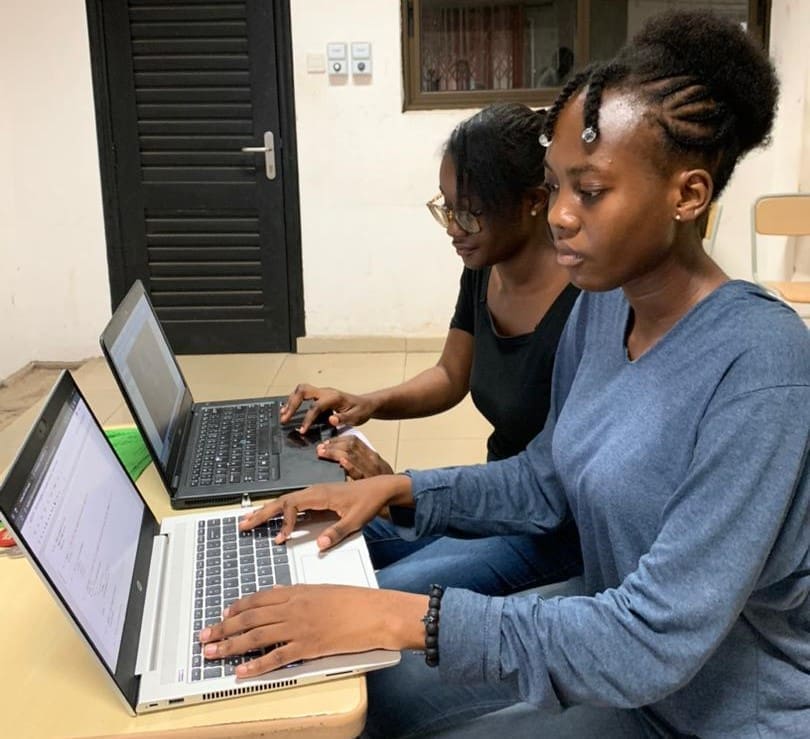

The future as a Biomedical Engineer in the new generation
What are your goals and ambitions for your future career?
I aim to improve my skillset, striving for perfection in both biomedical engineering and graphic design. I envision seamlessly integrating these two passions. As well, I aim to travel around the world to help people, solve problems, and make an impact on the lives of others. Serving as a mentor, inspiring others, and taking on leadership roles within my field are also my paramount objectives.
Would you consider working in another country? And why?
Yes, I would embrace working in another country. Beyond the access to highly equipped facilities, cutting-edge materials, and state-of-the-art instruments that foster efficient and comfortable working environments, international experiences would expose me to a variety of cultures. This would enrich my personal and professional growth uniquely.
Is there an area you would like to specialise in?
I would like to specialise in Bioinformatics. It is quite an intriguing field that I would like to explore.
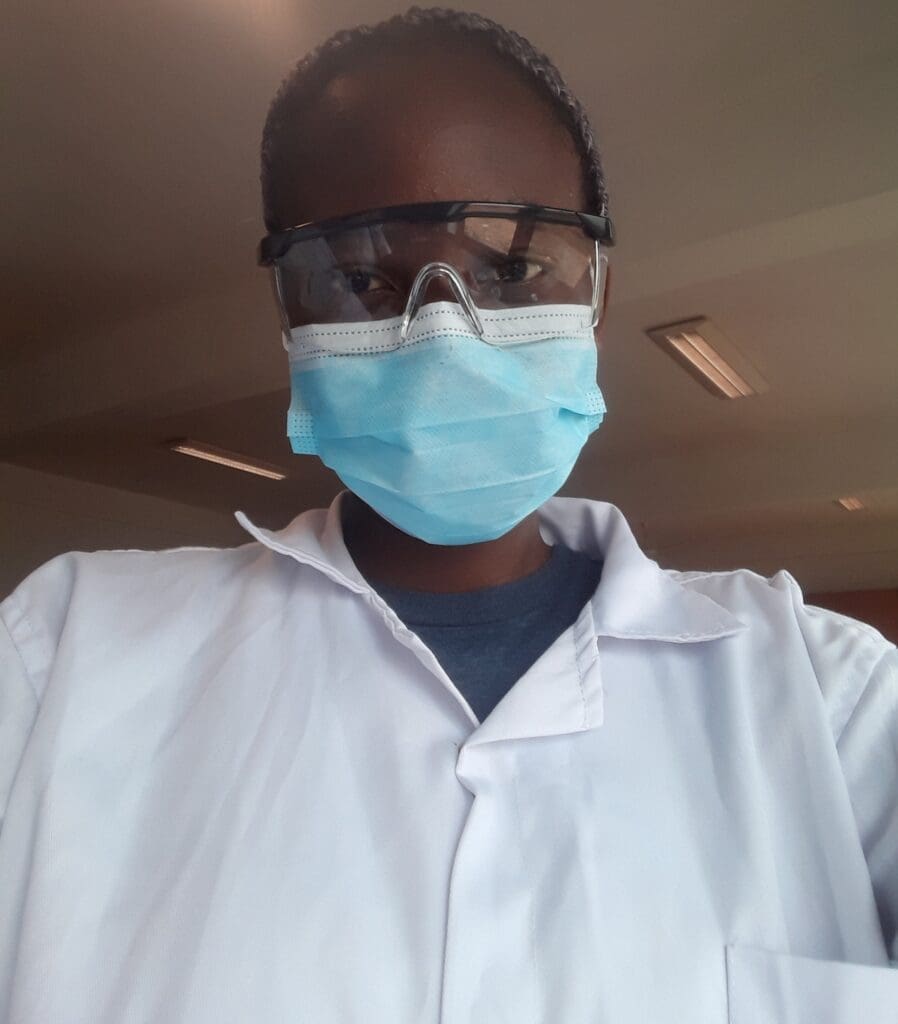

The Future of Biomedical Engineering in Africa
What are your hopes for the future of biomedical engineering in Africa?
The future of biomedical engineering in Africa is very promising. It has the potential to change healthcare and bring on board innovative solutions to complex problems. By fostering affordable medical innovations, supporting local creativity and entrepreneurship, and investing in educational and training initiatives that promote student projects and collaborative teamwork, we can pave the way for better, more accessible healthcare systems across Africa. Biomedical engineering can play a big part in creating a healthier and better future for the continent.
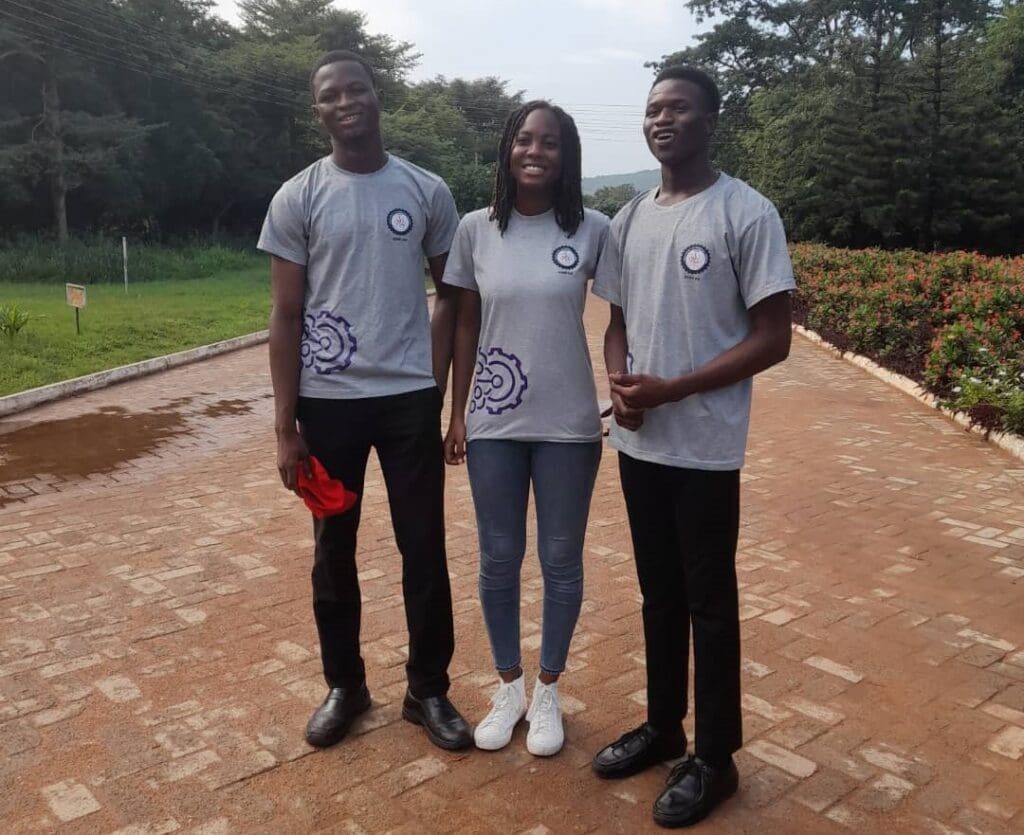

Further reading about Biomedical Engineers in the new generation
Life studying biomedical engineering in Africa


That’s inspiring.
Wishing you all the best in your journey, Ethel.